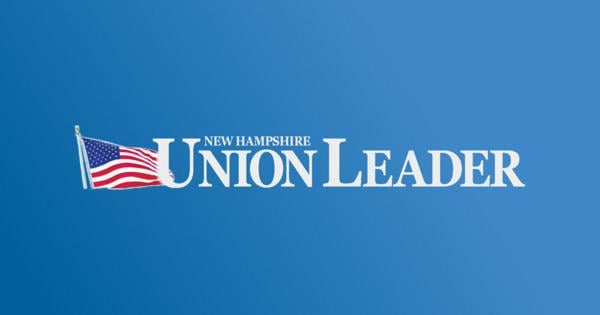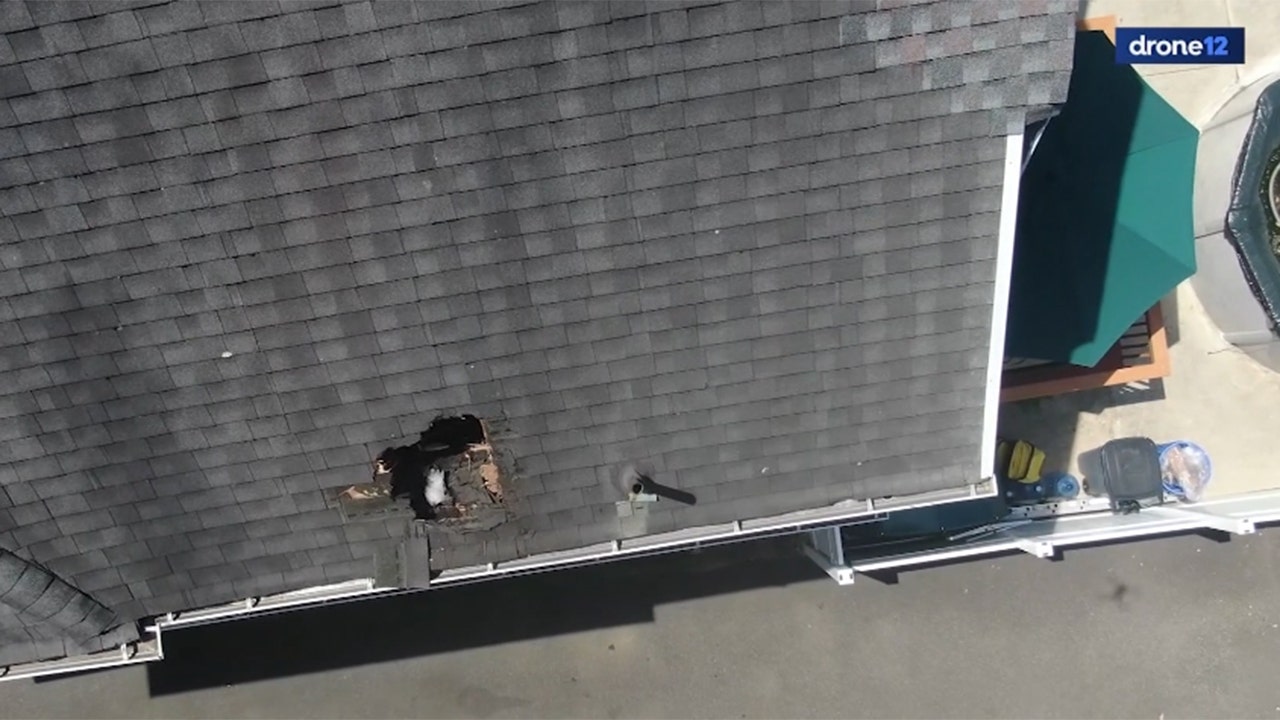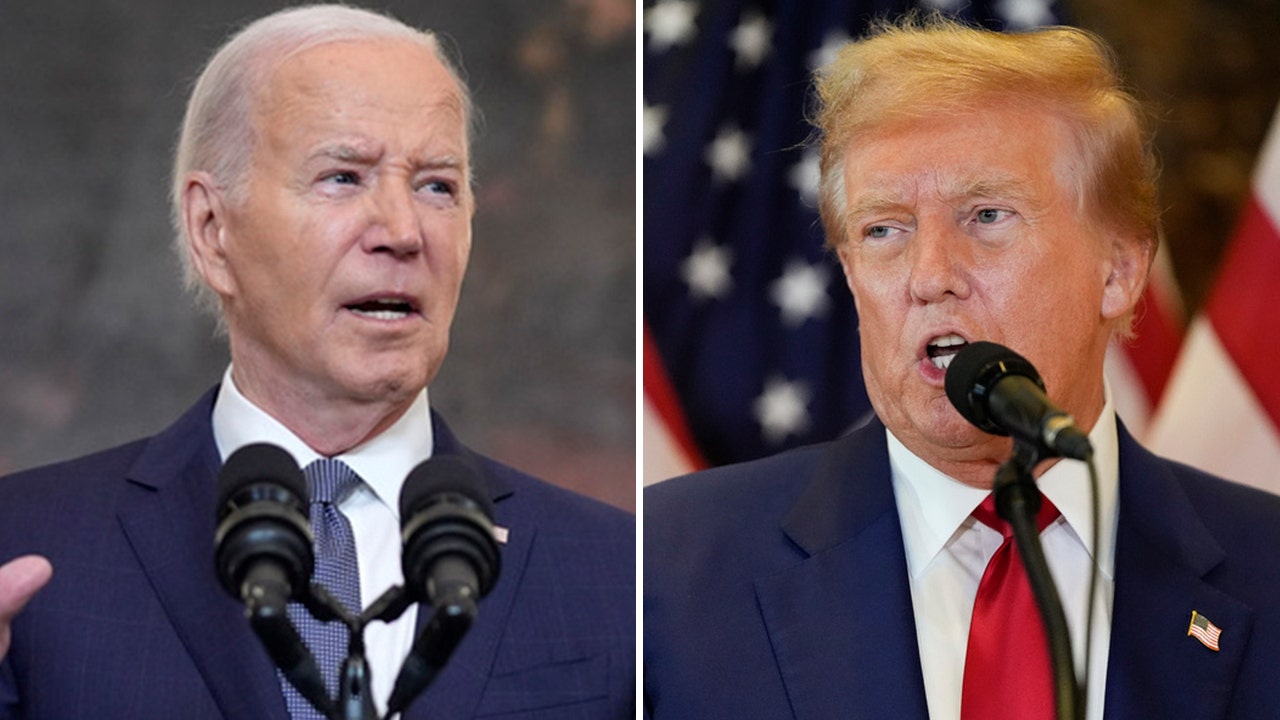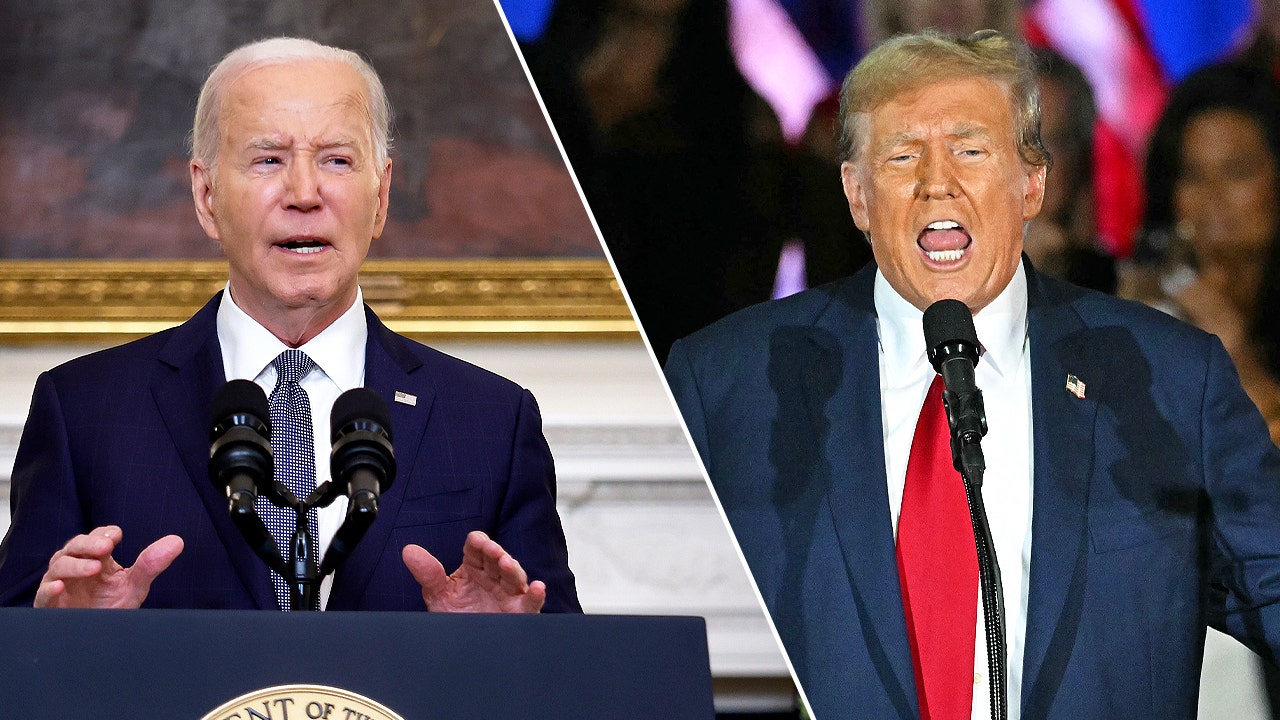Idaho
2024 Idaho Primary Election Results

. Please note that these results do not become official until they are certified on June 5, 2024.
Congressional Districts 1 and 2 U.S. Representative Races:
In the race for District 1 U.S. Representative, incumbent Republican Russ Fulcher ran unopposed in the GOP Primary. He automatically advances to the November election.
For the Congressional District 2 U.S. Representative seat, Republican incumbent Mike Simpson received 54.7% of the vote, beating challengers Scott Cleveland (35.8%) and Sean Higgins (9.5%).
Just one candidate ran in each of the Congressional Districts 1 and 2 U.S. Representative races on the Democratic ballot. CD1 candidate Kaylee Peterson and CD2 candidate David Roth both automatically advance to the general election.
The Libertarian Party also had one candidate for each CD U.S. Representative race. Matt Loesby will be on the November ballot for CD1 Representative and Todd Corsetti for CD2 Representative.
The Constitution Party had one candidate on the ballot for CD1 Representative, Brendan Gomez. He automatically advances to November. In the CD2 Representative race, two Constitution Party candidates ended the night with very close results. A candidate named Idaho Law – Carta Sierra received 51% of the ballots cast, while a candidate named Pro-Life garnered 49%. Idaho Law – Carta Sierra will advance to the general election.
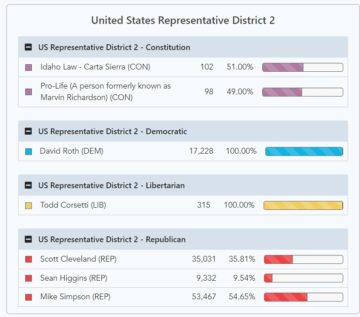
The following is information on races across Idaho’s 35 Legislative Districts. The current Legislative District map can be seen here.
Idaho Legislative District 1:
In the state Senate race, former Senator Jim Woodward beat incumbent Senator Scott Herndon, 52% to 48%. There was no primary in any other party for the LD1 Senate seat.
In the House of Representative race Seat A, Republican Mark Sauter beat two challengers. Democrat Karen Matthee ran unopposed and will advance to November.
For House of Representatives Seat 1B Democrat Kathryn Larson beat Bob Vickaryous overwhelmingly, 92% to 8%. Republican Cornel Rasor beat Chuck Lowman 52% to 48%.
In Idaho Legislative Districts 2 and 3, all state Senate and House of Representatives candidates ran unopposed and will advance to the November general election.
Idaho Legislative District 4:
The only contested primary in LD4 was for State Representative Seat B. Republican incumbent Elaine Price beat Dave Raglin 60% to 40%. All other candidates ran unopposed.
Idaho Legislative District 5:
The only contested race in LD5 was for State Senate. Republican incumbent Carl Bjerke overwhelmingly defeated challenger Cheri Zao, 77.5% to 22.5%.
Idaho Legislative District 6:
Two Republican challenges took place in LD6. Incumbent Senator Dan Foreman beat challenger Robert Blair, 53% to 47%. In the GOP battle for House of Representatives seat 6A, incumbent Lori McCann beat two challengers and will advance to November to face a Democratic challenger.
Idaho Legislative District 7:
LD7 also saw two contested GOP races. Kyle Harris beat Jim Chmelik in the State Rep Seat A contest. For State Rep Seat B, Charlie Shepherd defeated challenger Larry Dunn to secure his November appearance.
Idaho Legislative District 8:
This area – which is comprised of Elmore, Boise, Custer, and Valley Counties – is the center of much discussion in this primary. For State Rep Seat 8A, GOP challenger Rob Beiswenger beat incumbent Matt Bundy, 54% to 46%. For State Rep Seat 8B, Republican challenger Faye Thompson beat longtime incumbent Megan Blanksma, 51% to 49%. The State Senate seat was also contested in the Republican party. Incumbent Geoff Schroeder was beat by former Representative/former Senator Christy Zito.
Idaho Legislative District 9:
In the GOP race for the nomination for State Senate, Brandon Shippy beat former Representative Scott Syme. For State Rep seat 9A, GOP incumbent Jacyn Gallagher was defeated by challenger John Shirts, 38% to 62%.
Idaho Legislative District 10:
Incumbent GOP State Senator Tammy Nichols easily beat challenger Lori Bishop, 64% to 36%. Speaker of the House Mike Moyle was challenged by Rachel Hazelip for State Rep seat 10A. Moyle narrowly won the Republican nomination, beating Hazelip by 799 votes, and will face a Democrat in November.
Idaho Legislative District 11:
GOP challenger Camille Blaylock beat incumbent State Senator Chris Trakel, 52% to 48%. For State Rep seat 11A, Republican challenger Kent Marmon beat incumbent Julie Yamamoto, 57% to 43%. Lucas Cayler and Sarah Chaney faced off in the GOP primary for House Rep seat 11B. In a very close result, Cayler beat Chaney 1,695 votes to 1,656 votes and will now face Democrat Marisela Pesina in the November general election.
Idaho Legislative District 12:
In the State Senate GOP race, incumbent Ben Adams defeated challenger Victor Rodriguez, 58% to 42%. For State Rep seat 12A, Republican Jeff Cornilles beat Jarome Bell, 60% to 40%. State Rep seat 12B shows a big win by incumbent Republican Jaron Crane over challenger John (Jay) Noller, 78% to 22%. All other candidates ran unopposed in their respective parties.
Idaho Legislative District 13:
For State Senate in LD13, GOP incumbent Brian Lenney beat former Senator Jeff Agenbroad by 541 votes. There was a three-way race for State Rep seat 13B. Incumbent Kenny Wroten and challenger Amy Henry were both defeated by Steve Tanner.
Idaho Legislative District 14 had no contested primary races.
Idaho Legislative District 15:
In the Democratic primary for State Rep seat 15B, Shari Baber defeated Ivan Hurlburt, 67% to 33%. All other races were uncontested.
Idaho Legislative District 16:
Two seats in LD16 saw Democratic contests. For State Senate, incumbent Ali Rabe beat challenger Justin “Justice” Mitson by one of the largest margins – 89% to 11%. Four candidates were vying for the Democratic nomination for State Rep seat 16B. Todd Achilles won the race with 46.54% of the vote. The other three candidates split the remaining 53.46%.
Idaho Legislative Districts 17, 18, and 19 did not have any contested races in the primary.
Idaho Legislative District 20:
State Senate Pro Tempore Chuck Winder lost his seat to GOP challenger Josh Keyser, 2,926 votes to 3,207 votes. The House seats did not have any contested races.
Idaho Legislative District 21:
GOP incumbent Treg Bernt beat challenger Brenda Bourn to earn the Republican nomination for State Senate, 59% to 41%. In the race for State Rep seat 21A, there was a three-way race in the GOP. Incumbent James Petzke easily secured the win with just over 55% of the vote.
Idaho Legislative District 22:
State Rep seat 22B saw incumbent Jason Monks challenged by Marisa Stevens Keith. With a 67% to 33% margin, Monks won the race. The other two seats in LD22 did not have contested races in the primary.
Idaho Legislative District 23:
In the GOP race for State Rep seat 23A, Chris Bruce beat Melissa Durrant in a close race with the totals being about 51% to 49%. Incumbent Tina Lambert was defeated by challenger Shawn R Dygert in the race for State Rep seat 23B. The vote count was 3,129 for Lambert and 3,324 for Dygert.
Idaho Legislative District 24:
State Senate GOP incumbent Glenneda Zuiderveld was challenged by Alex Caval but won the race with a 54.59% to 45.41% result. In the race for State Rep seat 24A, Chenele Dixon was defeated by Clint Hostetler who received 1,558 more votes. Republican Steve Miller beat Republican Jeff Faulkner for State Rep seat 24B by 11.5% of the votes cast.
Idaho Legislative District 25:
Linda Wright Hartgen, GOP incumbent in the State Senate, was defeated by Josh Kohl by a large margin, 63% to 37% to win the nomination. There is no nominee in any other party, so Kohl will win the seat in November. David Leavitt beat Greg Lanting for the GOP nomination for State Rep seat 25B. With no challenger from any other party for this seat, Leavitt will be the winner in November.
Idaho Legislative District 26:
Republican Mike Pohanka beat Kally Schiffler for the GOP nomination for State Rep seat 26A in a 60% to 40% result. In the race for State Rep seat 26B, Lyle Johnstone lost to Jack Nelsen by 169 votes.
Idaho Legislative District 27:
The only contested primary in LD27 was for State Rep seat 27B. Clay Handy beat Pat Field with a 59% to 41% result.
Idaho Legislative District 28:
In the GOP contest for the nomination for State Rep seat 28A, incumbent Rick Cheatum defeated two challengers. For State Rep seat 28B, Dan Garner beat Kirk Jackson with 55.53% of the vote.
Idaho Legislative District 29 had no primary contests.
Idaho Legislative District 30:
In the race for the State Senate Republican nomination, incumbent Julie VanOrden beat Jerry Truth Bingham 63% to 37%. In the House seat 30A GOP contest, David Cannon beat Josh Sorensen. For House seat 30B, Republican Ben G. Fuhriman beat incumbent Julianne Young by just 10 votes.
Idaho Legislative District 31:
LD31 had just one contested primary race. State Representative seat 31B GOP incumbent Rod Furniss beat former Representative Karey Hanks by 268 votes.
Idaho Legislative District 32:
In the race for GOP nomination for State Seante in LD32, Kevin J Cook defeated Keith Newberry, 69% to 31%. There was a three-way race in the GOP for State Rep seat 32A. Incumbent Stephanie Mickelsen easily won the race with over 60% of the vote. There was also a three-way contest for State Rep seat 32B. Incumbent Wendy Horman with 45.5% of the overall vote.
Idaho Legislative District 33:
The GOP primary race result for State Senate in LD33 shows incumbent Dave Lent defeating challenger Bryan Scholz 60% to 40%. The Republican race for House seat 33B resulted in incumbent Marco Erickson beating challenger Jilene Burger 55% to 45%.
Idaho Legislative District 34:
LD34 had just one primary race. The House seat 34B GOP incumbent Britt Raybould beat challenger Larry E Golden with 65% of the vote.
Idaho Legislative District 35:
GOP incumbent Mark Harris beat challenger Doug Toomer for State Senate by about 2,000 votes. In the Republican primary contest for House seat 35B, incumbent Joshua Wheeler defeated challenger Brett C. Skidmore 62% to 38%.
All judges who were up for election were retained by the people, including Idaho Supreme Court Chief Justice Richard Bevan. You can find statewide results for all the bonds and levies here.

Tags: 2024 Primary Election, Constitution, Democrat, Idaho, Incumbent, Indepedent, Libertarian, Republican, State Legislature, State Representative, State Senator, U.S. House of Representative

Idaho
Idaho Falls man arrested for aggravated battery after SWAT Response – Local News 8

IDAHO FALLS, Idaho (KIFI)-An Idaho Falls man has been arrested for aggravated battery, ensuing chaos in an Idaho Falls neighborhood, and causing a SWAT response from the Idaho Falls Police Department.
The suspect is identified as 47-year-old, James Schumacher.
He was arrested for slapping a person on the face and making a threatening statement. He then damaged a second person’s vehicle causing $3,000 in damages.
Schumacher then hit a third person in the face with a rusty metal serrated edged gardening tool.
A fourth person came outside of their residence when they heard the commotion armed with a paintball gun loaded with pepperballs.
Schumacher swung a sign at the fourth person, who then shot and hit Schumacher with a pepperball with no effect. Schumacher went back to his property and threw rocks at the other people.
At that point, Officers began arriving on scene. Officers told Mr. Schumacher, who was standing on his porch, he was under arrest and gave commands for him to come to the officers. Schumacher retreated inside his residence and barricaded himself inside. Officers made several attempts to speak to Schumacher by calling his phone and using a PA system without any response from Schumacher.
Schumacher, an Idaho Falls resident, was arrested for Felony aggravated battery, felony aggravated assault, felony malicious in injury to property, and misdemeanor resisting and obstructing.
He was also cited for misdemeanor battery, misdemeanor attempted battery, and misdemeanor disturbing the peace.
He is currently booked into the Bonneville County Jail.
(This information is from an Idaho Falls Police Department press release. The original author is Public Information Officer Jessica Clements)
Idaho
What Idaho’s Republican Primary Tells Us About The Culture Wars

For years, Idaho has been at the vanguard of the culture wars that are playing out in conservative states across the country.
It was the first state to attempt to restrict transgender girls and women from competing on women’s athletic teams, passing legislation that became a model for states across the country. It was among the first to explicitly ban “critical race theory” from public schools and target diversity, equity and inclusion efforts in public institutions. And the Idaho Freedom Foundation, a far-right Idaho political group, took an early lead in a nationwide campaign to remove books from libraries based on their content.
But Idaho Republicans have increasingly disagreed over how far to take these efforts. Capitol police in Boise had to intervene in a 2022 fight over proposed “parental freedom” legislation that, among other things, would have created a $1,000 fine if a school didn’t give parents what they want.
This year, two prominent far-right Republicans were recorded quarreling over the party’s direction — an exchange that InvestigateWest said illustrates “a fracture among key far-right figures in Idaho politics, in a state where many races turn on contests of conservative purity.”
The Idaho Republican primary on May 21 continued the Legislature’s march to the right. Candidates who were aligned with the highly conservative Idaho Freedom Foundation picked up a net of eight seats, according to the group’s own tally. And in a state with so few Democrats, GOP primary winners are typically all but a lock to win in November’s general.
Yet these GOP purists fell short of one important milestone: enough members to outright control the legislative agenda. Some moderates fended off challengers from the right. Some incumbent hard-liners lost their seats.
The primary results were the latest reminder that Idaho Republicans remain far from united. And there are signs that the rift is leading frustrated Idaho voters to reject incumbents in general — conservative and moderate alike.
Here are some takeaways, based on local news reports and ProPublica’s interviews with experts in Idaho politics.
Incumbents at risk
A surprising number of incumbents were knocked out of office in May. Almost all of the 87 Republicans in office were on the ballot. Of the 47 who faced challengers, 15 lost their seats.
It wasn’t the largest-ever purge, but it included the historic takedown of the GOP Senate leader by a newcomer to Idaho with no legislative experience.
Ron Nate, president of the Idaho Freedom Foundation, wrote in a blog post that the primary was “a good night for friends of liberty and a bad night for establishment good-old-boys.”
He noted that 11 of the ousted GOP incumbents had F grades on the group’s “Freedom Index,” while three of the losing incumbents had an A grade going into the election.
But this apparently resounding victory for the group’s ideas seems less so considering that prior to the election, the Freedom Foundation gave F’s to 47 Republicans who were on the ballot and A’s to only 10. In other words, about 23% of the foundation’s least-favorite lawmakers lost reelection races, while 30% of its favorites lost.
At least some of this housecleaning may reflect voter disgust with both warring camps in the Legislature.
“There’s a lot of people who are just frustrated, and so some of it kind of went into an anti-incumbent” wave, said Jaclyn Kettler, associate professor of political science at Boise State University.
Kettler pointed to a recent survey of about 1,000 Idahoans. Although it found that a majority of Republicans thought Idaho was headed in the right direction, a substantial minority — 30% — said it was on the wrong track.
Urban conservatism is real
Some of the most important losses for moderates happened in the populous Treasure Valley region, home to Boise and its fast-growing suburbs.
It’s one of few parts of Idaho where Democrats and middle-of-the-road Republicans have traditionally held power, but its electorate has changed with the arrival of more and more right-leaning voters from California.
Sen. Chuck Winder, R-Boise, the highest-ranking Republican in the Senate with eight terms of service, lost his seat to Josh Keyser, who was raised in Southern California and moved to Boise in 2018. Keyser’s website said he was vice principal at a Christian school.
Winder had clashed with legislators to his right and was a critic of the Idaho Freedom Foundation, which has pushed to slash government spending across the board, worked to repeal the Idaho Medicaid expansion that was enacted by voters, claimed that Idaho’s schools are indoctrinating children into leftist politics, and more.
Stephanie Witt, professor of public policy, administration and political science at Boise State University, told ProPublica the upset for Winder and other Boise-area incumbents illustrated a stark new reality.
“It’s hard to overstate the number of California relocations and their interest,” Witt said.
“We’ve had people that were good legislators, very conservative, in the Treasure Valley,” she said, “but they’re being painted like they’re Bernie Sanders acolytes.”
Winder noted the changing politics of Idaho in an interview with the Idaho Press after the election.
“I think we’ve had a huge influence from out-of-state people moving here,” he told the publication. “All in all, Idaho is going to be fine, but good mainline Idaho people are going to have to get more involved in the party.”
Less-populated area snub the far right
In contrast to the wins for right-wing candidates in the capital city and its suburbs, several legislators far from Boise won reelection by wide margins, despite attacks from their county GOP committee claiming they failed to support the Republican platform.
East Idaho, known for agriculture, a national nuclear laboratory and a large membership in The Church of Jesus Christ of Latter-day Saints, also narrowly voted to oust a hard-line conservative incumbent.
Julianne Young, an East Idaho Republican who introduced legislation to make “gender” and “sex” synonymous in state law, trailed her opponent by two votes, though she says she will request a recount.
In rural North Idaho, voters kicked out Sen. Scott Herndon, a conservative firebrand whose legislative agenda included making abortion illegal for rape victims. Herndon lost to former legislator Jim Woodward, who said he wants to see some health-related exceptions to the state’s abortion ban, according to Politico.
This year’s results revealed that some conservative Idahoans went into the voting booth with a “traditional Idaho trait: that you don’t like to be pushed around,” said Jim Jones, a Republican who previously served as attorney general and chief justice of the Idaho Supreme Court.
Jones, an outspoken critic of polarized Republican politics, is pushing for a ballot initiative this fall that would replace party primaries with a single, nonpartisan primary. The top vote-getters would then face off in a ranked-choice vote in the general election. Jones says the initiative would take power away from the fringes and put a premium on appealing to all voters.
Attack on libraries can backfire
The outcomes also offered a partial verdict on one of the most explosive issues in America’s culture wars.
Idaho’s GOP last year held a no-confidence vote against 14 legislators statewide who in 2023 failed to support letting parents sue libraries over books considered “harmful to minors.” (The no-confidence vote also swept in Idaho’s Republican governor.) Nine of the 14 survived the GOP primary.
Kettler said the state and local Republican Party members who condemned incumbents over the library issue might be “more ideologically extreme” than most voters.
Idaho GOP Chair Dorothy Moon did not respond to interview requests from ProPublica. According to the Idaho Statesman, Moon said in her election night speech, “I think we’re fighting for the heart and soul of the party and the heart and soul of Idaho.”
The Idaho Public Policy Survey — the survey of about 1,000 residents conducted in November — found overwhelming support for libraries. About 62% of the 374 self-identified Republicans who responded said they trust the choices of libraries and librarians.
Of the lawmakers who survived the primary despite their party’s censure of their library vote, about half were from East Idaho.
“My view is that, in eastern Idaho, the voters were sick and tired of all of the culture war fighting,” said Jones.
Jury on public education is still out
One of the highest-profile losses for incumbents was a Boise-area Republican who thwarted tax-funded vouchers that would allow parents to send their children to private school using public funds — a central policy goal of right-wing purists who describe it as “school choice.”
Julie Yamamoto led Idaho’s House Education Committee when it rejected voucher legislation. Challenger Kent Marmon, who embraces school choice, painted Yamamoto as a liberal.
A Virginia-based political action committee called Make Liberty Win produced fliers saying Yamamoto voted to support “porn in school libraries being shown to minors,” Idaho Education News reported, a claim she called “garbage.”
The losses for voucher foes like Yamamoto weren’t uniform. The Senate’s education chair, who has questioned the benefits of voucher proposals, retained his seat. And the Senate lost a key voucher supporter in Herndon, the North Idaho Republican; his challenger has spoken out against public support for private education, according to Idaho Education News.
It is unclear what the outcome portends for Republicans when they take up school spending issues next year.
Idahoans regularly list public education as a top priority. In sparsely populated parts of Idaho, which often lack private schools, the public schoolhouse is a gathering place for football games or performing arts — the “heart of the community,” as Jones says.
But advocates for “school choice” in Idaho appear to be finding an audience.
The recent state policy survey found that 60% of Republicans favored letting Idaho parents use $8,000 of public school money to enroll their student in private or religious school. About twice as many Republicans said they “strongly favor” that idea as “strongly oppose” it.
Kettler said national conservative groups seized on that sentiment and spent heavily on Idaho’s primary races this year, seeing Idaho as a place to advance conservative school policies such as vouchers.
These groups decided, Kettler said, that “it’s worth investing.”
This story was republished with permission from ProPublica.
Idaho
Commission denies telecom company’s application seeking approval to have equipment designated as qualified broadband equipment.

BOISE, Idaho – The Idaho Public Utilities Commission has denied an application from CenturyLink requesting that equipment it installed in 2022 be designated as qualified broadband equipment.
Idaho code allows a taxpayer to receive an income tax credit for having installed qualified broadband equipment during a calendar year. Before the taxpayer is eligible for the credit, the taxpayer is required to apply to the commission for an order confirming the equipment is qualified broadband equipment as defined in Idaho statute. The statute defines the equipment as being capable of transmitting signals at a rate of at least 200,000 bits per second to a subscriber and at least 125,000 bits per second from a subscriber.
In its application to the commission, CenturyLink said its net investment in qualifying broadband equipment in 2022 was $23,348,473. It indicated its lowest transmission rates were 500,000 bits per second and 250,000 bits per second for downloads and uploads, respectively.
The commission denied CenturyLink’s application after reviewing it and determining it did not properly describe the broadband equipment in question. The company also did not respond to audit requests from commission staff for information on the equipment that would have included the brand, model number and manufacturer.
Additional information is available here.
Copyright 2024 KMVT. All rights reserved.
-

 News1 week ago
News1 week agoWoman handcuffed in police car hit by freight train reaches $8.5M settlement
-

 News1 week ago
News1 week agoIsrael used a U.S.-made bomb in a deadly U.N. school strike in Gaza
-
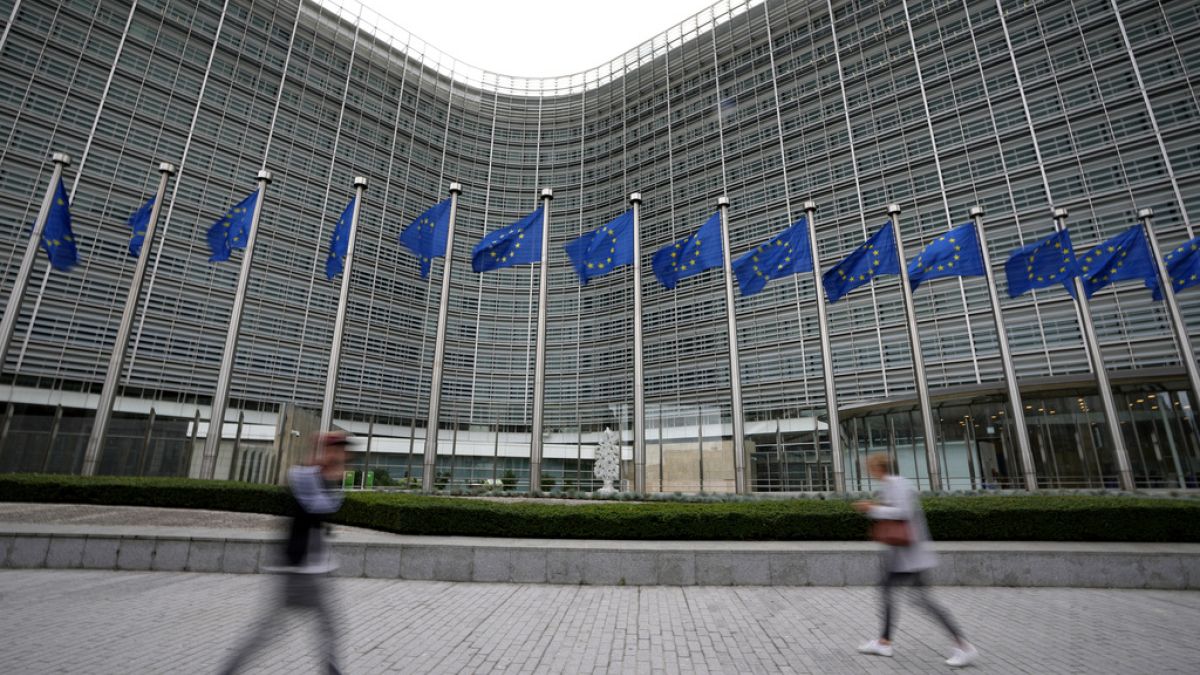
 World1 week ago
World1 week agoEconomy, migration: Voters' main concerns ahead of elections
-
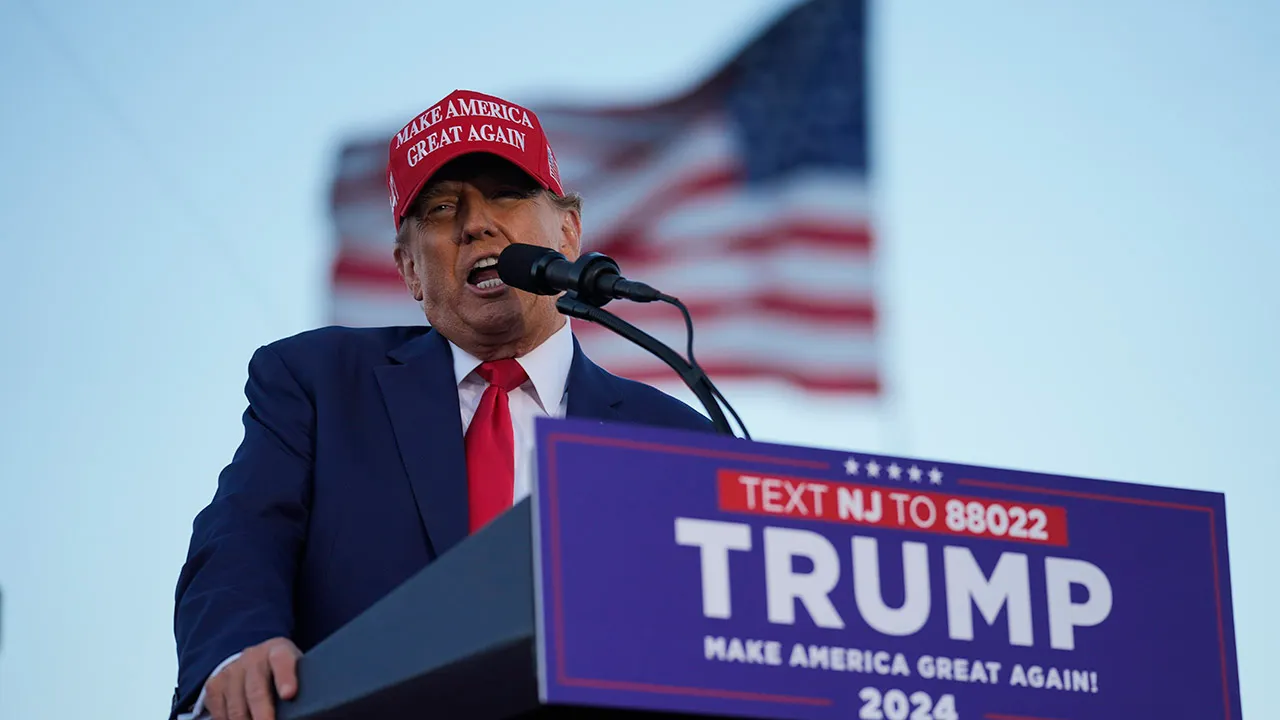
 Politics1 week ago
Politics1 week agoTrump campaign accelerates vetting of potential running mates
-
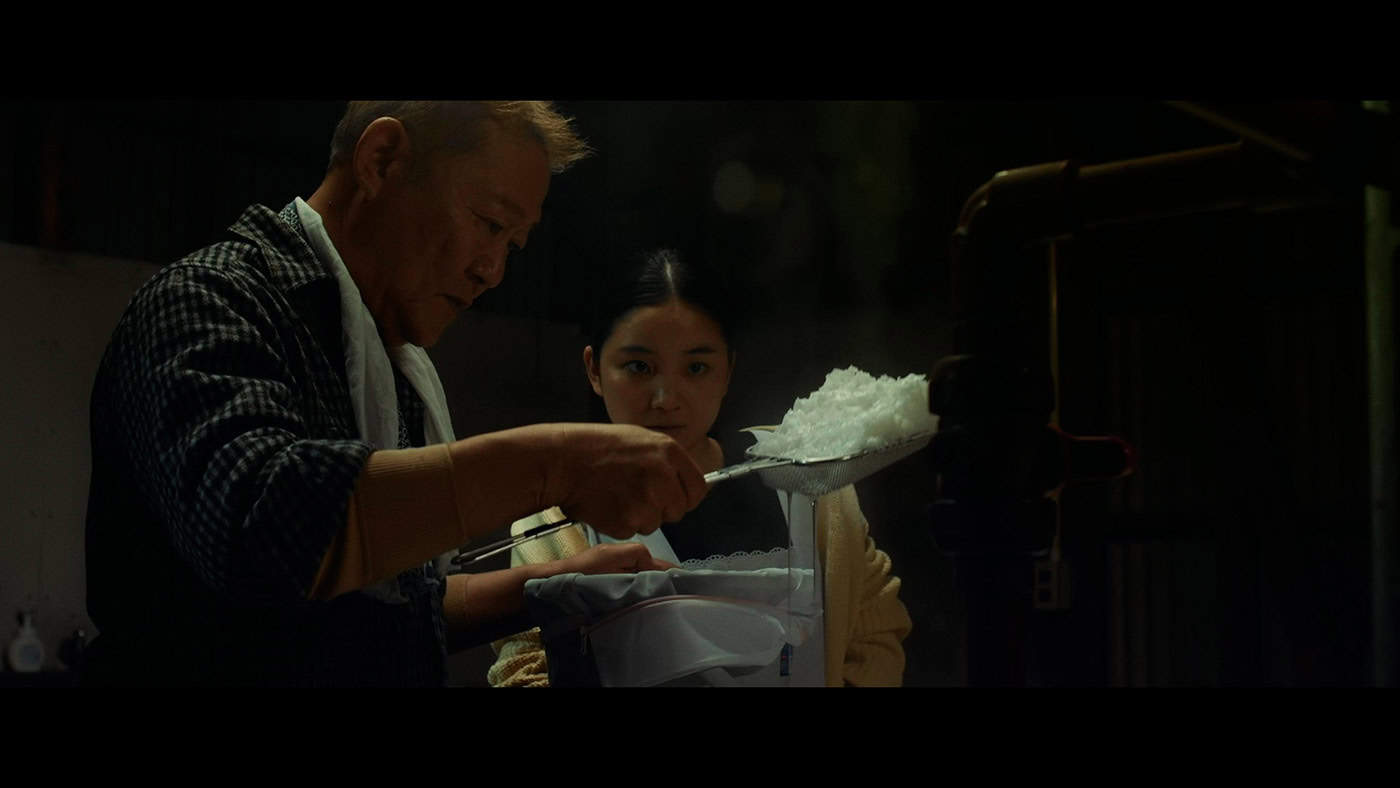
 Movie Reviews1 week ago
Movie Reviews1 week agoShort Film Review: Blue and White (2022) by Hiroyuki Nishiyama
-

 World1 week ago
World1 week agoFrance to provide Ukraine with its Mirage combat aircraft
-

 World1 week ago
World1 week agoWorld leaders, veterans mark D-Day’s 80th anniversary in France
-

 World1 week ago
World1 week agoRussia-Ukraine war: List of key events, day 833
